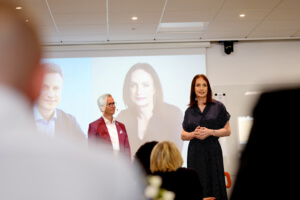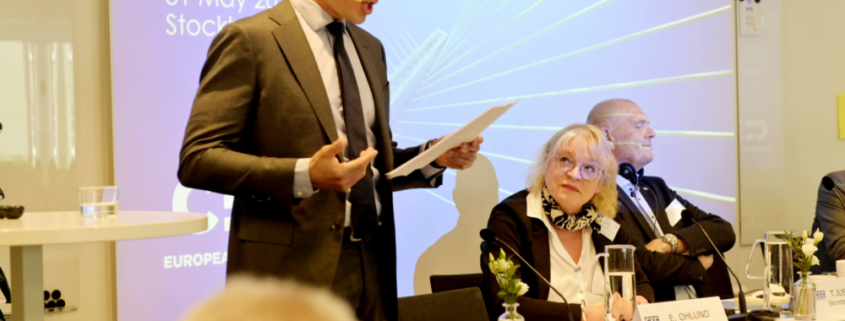Harvesting Europe’s diverse opportunities by leading on transformational equality
During CEC’s annual meetings, managers across Europe welcomed the adoption of its new Vision and Mission statement on Sustainable Leadership. More than ever, it’s about empowering leaders to find concrete ways of making workplaces more innovative, inclusive and impactful. During her keynote speech, Caroline Farberger highlighted the value of leaders acting on equality in business and beyond.
“As confirmed by Eurofound, CEC is in an important position to bring a leadership perspective to social dialogue and to European policy-making. We believe that our common challenges require competent, inclusive and sustainable leaders across sectors. With our conference on equality, we concretely show how economic success, social partnership and inclusive leadership go together.”
On 31 May and 1 June in Stockholm, CEC European Managers has organized its General Assembly and Annual Conference on the topic of “Leading transformational equality for future-fit workplaces”. The event was hosted by Swedish CEC-member, Ledarna. The events were an occasion to look back at CEC’s achievements, including the EU-level negotiations on telework, the publication of the CEC Telework Guidelines or the engagement of policy-makers on climate leadership.
The second day hosted rich exchanges on the opportunities for leaders of following a transformational equality approach. The programme explored how to come obstacles to innovation, workplace well-being and value creation in the areas of gender equality and diversity. It has been proven that gender- and diversity-sensitive workplaces perform better in these areas. For leaders, this means understanding gender norms, promoting (age) inclusive practices and policies, and leading personally by example.

CEO and keynote speaker Caroline Farberger
In her keynote speech, CEO Caroline Farberger shared her personal story of gender transition as an example of bringing together personal thriving and business success. “Think about what you do. That is what counts. If you don’t, you may be unconsciously part of the problem. Inclusion is being genuinely interested in others”. Besides clear institutional measures and policies, leaders also have great leverage in changing narratives and gender norms. Fredrik Gustafsson presented Ledarna’s Future Female Leaders awards with concrete examples.
In the context of Sweden’s low share of older managers, the last session explored how age-inclusive measures can promote intergenerational learning, prevent labour shortages and anticipate demographic change. Anna Thoursie presented new findings on age discrimination and potential pathways of making workplaces more age inclusive. The panel debate on the topic then explored how to move beyond “ageism”.
Read more
Vision and Mission statement on Sustainable Leadership
“Ageism excludes managerial talent” report
PowerPoint presentation of “Leading on transformational equality” conference




